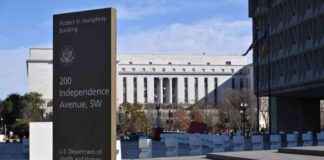**Is Kennedy Looking to Add Alcohol to the List of Health Risks?**
Robert F. Kennedy Jr. and his allies in the “Make America Healthy Again” movement have been vocal about various health concerns plaguing the nation. As they target products and policies that contribute to declining health, one item seems conspicuously absent from their agenda – alcohol.
Kennedy, potentially the future health secretary, would wield significant influence over health-related matters. Aside from his official duties, he could shape public discourse on health issues and potentially sway Congress through President Trump. Could Kennedy’s leadership spark a revival of the temperance movement and challenge alcohol’s politically protected status?
Linking Alcohol to Public Health
Calley Means, a trusted adviser to Kennedy, highlighted the need for transparency in identifying harmful substances and allowing informed decision-making by lawmakers. Alcohol, much like the ultra-processed foods Kennedy aims to regulate, can trigger addictive behaviors and contribute to various health problems.
Risks Associated with Alcohol Consumption
Studies have shown a clear link between excessive alcohol intake and a myriad of health issues, including heart disease, liver disease, stroke, high blood pressure, and multiple types of cancer. Even moderate alcohol consumption, as defined by health authorities, has raised concerns due to its potential association with breast cancer and other risks.
Industry Influence and Political Dynamics
Despite mounting evidence of alcohol’s health risks, the industry enjoys robust support from powerful corporations and lawmakers. The economic impact of the alcohol industry, including job creation and tax revenue, further complicates efforts to regulate alcohol consumption. However, voices within the MAHA movement and the broader health community are advocating for stricter regulations and increased awareness about alcohol-related health risks.
In a world where alcohol holds a significant cultural and economic foothold, the battle to address its negative health impacts remains complex. The intersection of politics, industry interests, and public health advocacy sets the stage for a contentious debate on alcohol regulation in the United States.
As Kennedy and his allies navigate the intricate landscape of health policy, the question remains: Will alcohol become the next target in the quest to make America healthy again?
Lev Facher contributed reporting.
STAT’s chronic health coverage is made possible by a grant from Bloomberg Philanthropies. Our financial supporters play no role in shaping our journalistic content.

















